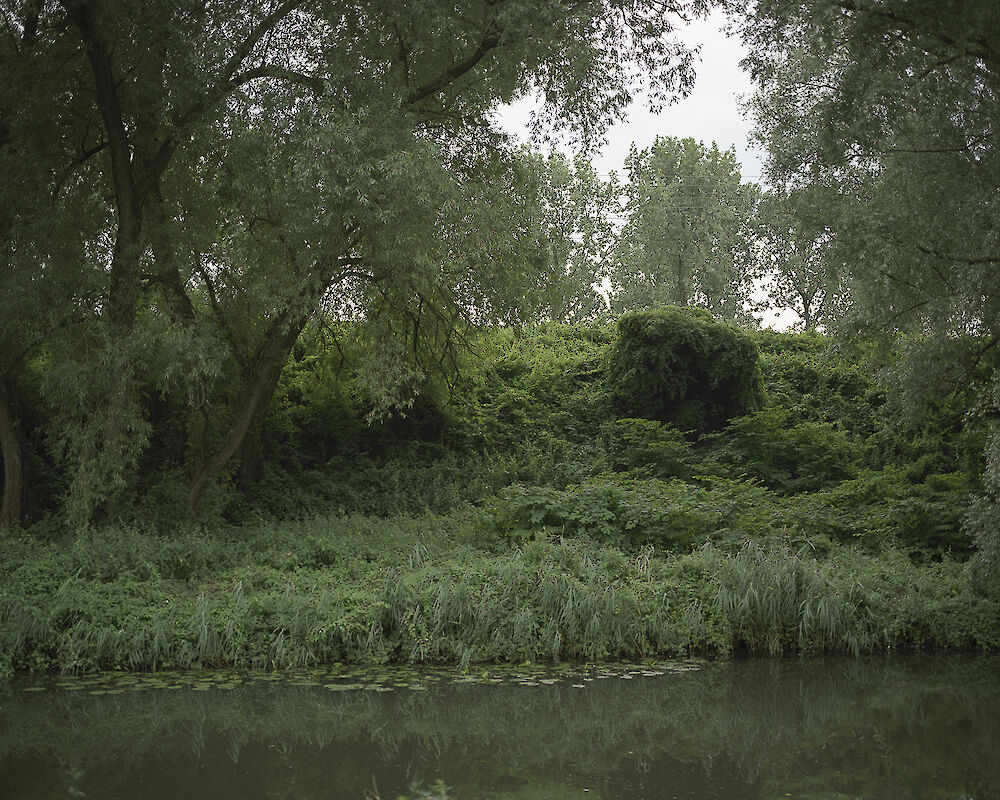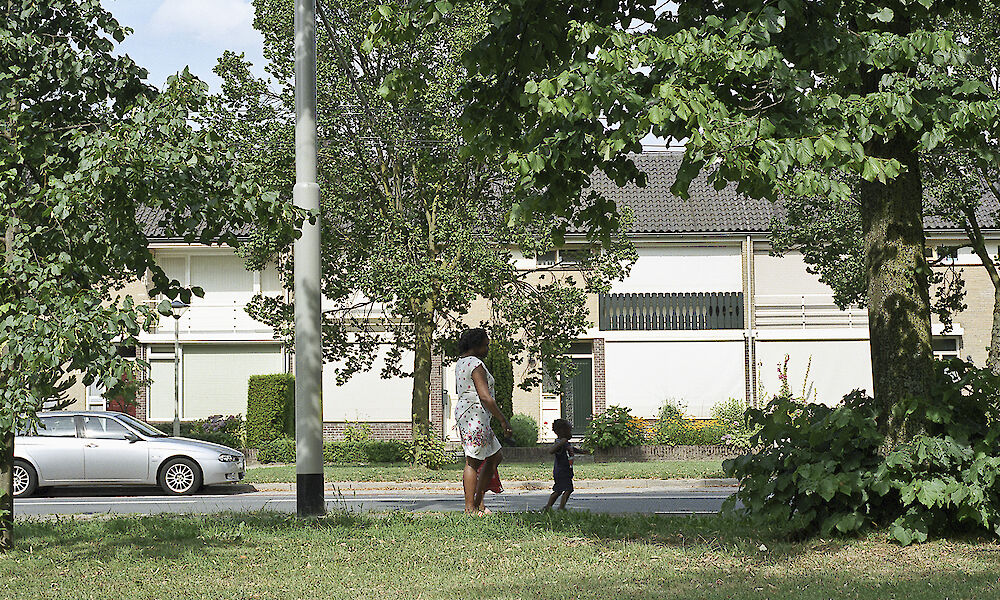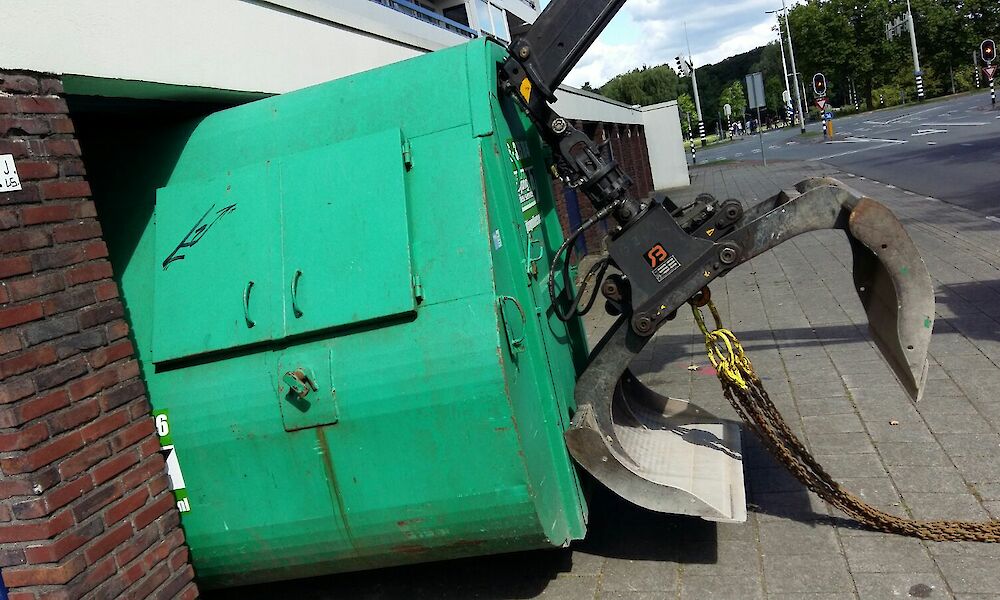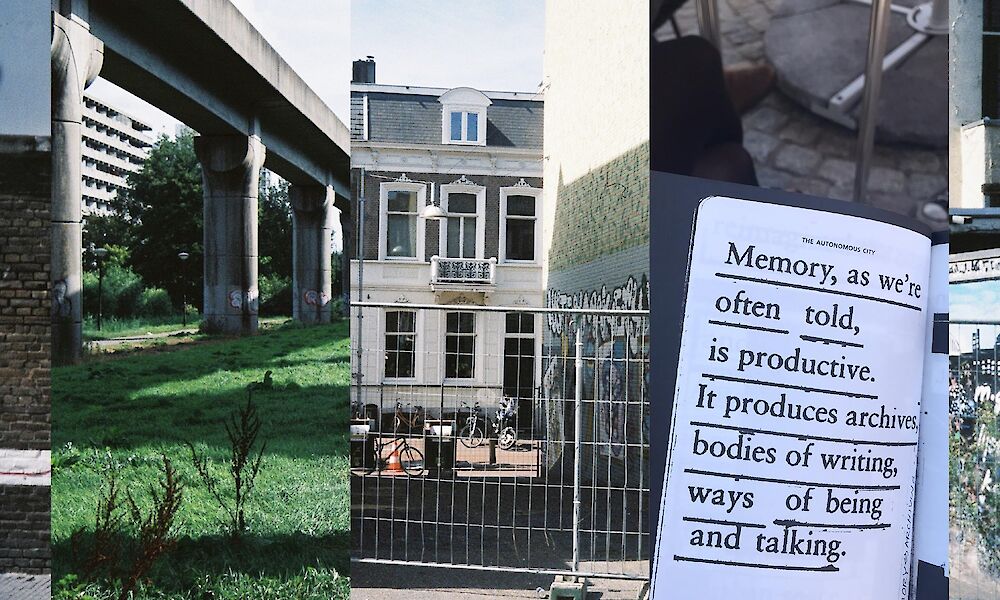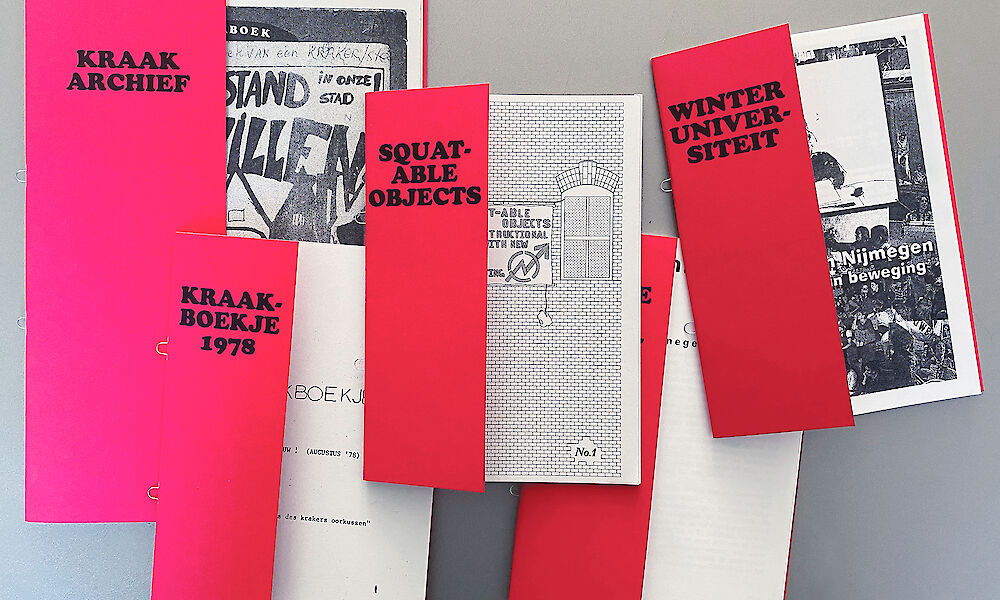Besides being a neighbor, I am a poet, my role is not to judge whether imaginaries are right or wrong. My role is to cultivate sensitivity to the images; what imaginations people project onto the world and how these imaginaries influence their actions. Imaginaries are volatile. They can lead to destruction, distance, and separation, but are also creative forces. You can take your imaginaries into the world and use them to build, form and shape environments. Environments that are habitable, in which you can place parts of yourself that can proliferate, unstoppable like sprawling weed. So that everywhere you look, you find a piece of yourself.
So admittedly, I imagine that people are beings who act on the basis of their imaginaries. In fact, the imaginations I hold about the world prompted me to write this text. My imaginary supposes that poets intervene in people's imaginations so that their images are complemented by the poet’s. Do I then, my dear reader, want to impose my imaginary on you? No, the poet has no power to impose. The poet merely possesses a force of creation, and images as instruments. All beings that imagine, that think images, have this creative power. We create new worlds with our words, our thoughts, and synchronously through our actions. Everything you touch changes and everything you touch changes you. Another thing I imagine.
The poet, like any artist, creates with intention. I create the imaginary of the neighborhood as a kind of society in miniature. The image of residents as tree roots. Because only together they make life conceivable as they feed from each other and from the soil they share. I create the imaginary of the neighborhood as a breathing lung: full and empty, and full, and empty - and out and in, and deep and shallow, and slow and fast, and intense and soft, and constantly in motion, unconsciously looking towards the next breath and the one after that. The image indefinitely unfinished. Of a chaos-city with nothing else to hold onto than each other. Just each other. The imaginary of all the things we relate to - all those present, surrounded by the brick buildings, the playgrounds, bus stops and spots of grass- all those things that make us what we keep becoming.
Perhaps we are nothing more than ever-becoming. And that is okay, I think. That is life according to me. The image of life as more than just beating organs and oxygen to the brain. But life as growing! Not necessarily growing one way, but proliferating! The image of a lush park, where all life pushes through the concrete folds and demands its place in the cracks between the tiles. Where human-made structures are basically always a step behind the life that sprouts from it. Life’s ways are boundless (is my imaginary). Therefore, life is not fixed in its form.
Life can be grand, with roots spreading through continents and over seas. Life can be thin, with all the time a hunger for more. Life can be bombastic, stirring up a symphony with lots of noise where sounds crash against residential towers and life roars. But life can also be small, no less life than big, but just like a silent march in the night, aloof from the noise in the mainstream. In any case, life has no prerequisite form nor course. You cannot pre-fabricate it, enforce it, neither save nor economise on it, you cannot get half of it nor double it. Life is not even whole, because life is not one thing.
Life is not a total sum, no totality. Not a complete. Not a nice round bounded circle. Life is noisy, moving, dynamic, an infinite network of intersections, leads, branches, splits, merges, exits, influx and efflux, ascents and descents. All of this, all of the time, and yet not always all of it. Because always is long. And everything is a lot. Sometimes some things not there or less and other things present and featured. Sometimes some things not yet around or existing and other things in your face or expired, sometimes only for a moment. Sometimes every kind of life is another echo echoing from everything in its path. Sometimes the reverberation is greater than the source. More often than not, the source has long since decayed, but still tangible in our airwaves.
Then, there are only weakening and strengthening echoes resonating with each other. Some are at their loudest together and some cancel each other out. Some are mainly in conflict and some harmonize. Some attract each other through tensions and some push each other away, simply because they are not in tune. Some echoes seem so small, so soft that you believe they are no longer there. And then BAM! THE ECHO BUILDS UP TO SOMETHING GRANDIOSE! Without the meaning to be disguised as small, nor the promise it will remain that large, but just an echo, sprawling, in relation to its ricocheting, in motion, mostly in the making and indefinitely unfinished. This is my imaginary of life in the hope that it enriches yours.
